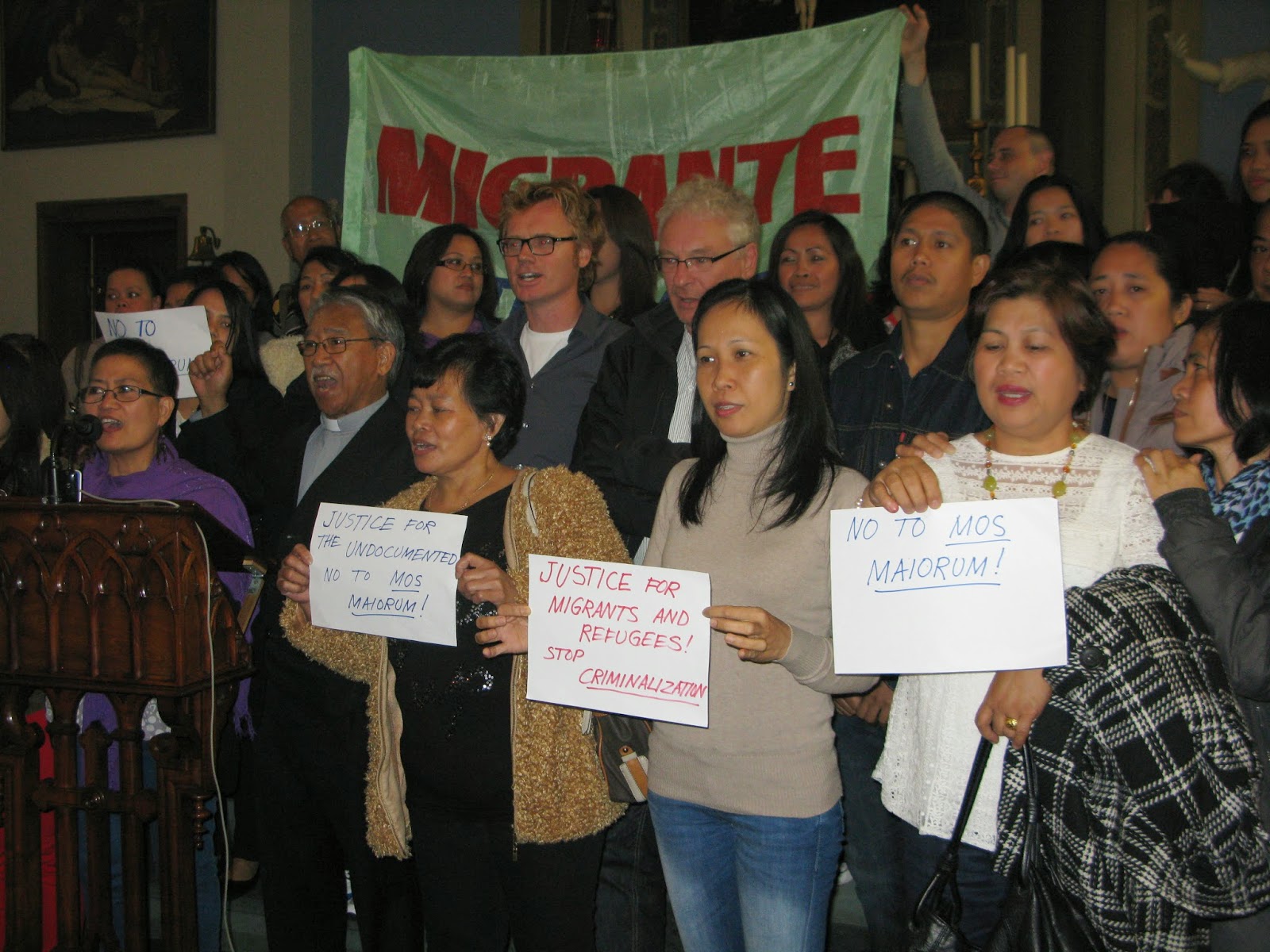Rome, Italy 29 November 2014
The term Tagalog refers to both an ethno-linguistic group in the Philippines and their language. Katagalugan may refer to
the historical Tagalog regions in the island of Luzon, part of the
Philippine islands.
However, the Katipunan secret society extended the
meaning of these terms to all natives in the Philippine islands. The society's
primer explains its use ofTagalog in a footnote:
The word tagalog means all those born in this archipelago;
therefore, though visayan, ilocano, pampango, etc. they are all tagalogs.
|
The revolutionary Carlos Ronquillo wrote in his memoirs:
Tagalog or, stated more clearly, the name
"tagalog" has no other meaning but "tagailog" which,
traced directly to its root, refers to those who prefer to settle along
rivers, truly a trait, it cannot be denied, of all those born in the Philippines,
in whatever island or town.
|
”
|
In this respect, Katagalugan may be translated as
the "Tagalog nation."
Andrés Bonifacio, a founding member of the Katipunan and
later its supreme head (Supremo), promoted the use of Katagalugan for
the Philippine nation. The term "Filipino" was then reserved for
Spaniards born in the islands. By eschewing "Filipino"
and "Filipinas" which had colonial roots, Bonifacio and his followers
"sought to form a national identity."
In 1896, the
Philippine Revolution broke out after the discovery of the Katipunan by
the authorities. Prior to the outbreak of hostilities, the Katipunan had become
an open revolutionary government. The American historian John R. M.
Taylor, custodian of the Philippine Insurgent Records, wrote:
The Katipunan came
out from the cover of secret designs, threw off the cloak of any other
purpose, and stood openly for the independence of the Philippines. Bonifacio
turned his lodges into battalions, his grandmasters into captains, and the
supreme council of the Katipunan into the insurgent government of
the Philippines.
|
Several
Filipino historians concur. According to Gregorio
Zaide:
The Katipunan was
more than a secret revolutionary society; it was, withal, a Government. It
was the intention of Bonifacio to have the Katipunan govern the
whole Philippines after the overthrow of Spanish rule.
|
Likewise, Renato Constantino and others wrote that
the Katipunan served as a shadow government.
Influenced
by Freemasonry,
the Katipunan had been organized with "its own laws,
bureaucratic structure and elective leadership". For each province it
involved, the Supreme Council coordinated provincial councils which were
in charge of "public administration and military affairs on the supra-municipal
or quasi-provincial level" and local councils,] in charge of affairs
"on the district or barrio level".
In the last
days of August, the Katipunan members met in Caloocan and decided to
start their revolt (the event was later called the "Cry of
Balintawak" or "Cry of Pugad Lawin";
the exact location and date are disputed). A day after the Cry, the Supreme
Council of the Katipunan held elections, with the following results:
Position
|
Name
|
President
/ Supremo
|
Andrés Bonifacio
|
Secretary
of War
|
Teodoro
Plata
|
Secretary
of State
|
Emilio
Jacinto
|
Secretary
of the Interior
|
Aguedo del
Rosario
|
Secretary
of Justice
|
Briccio
Pantas
|
Secretary
of Finance
|
Enrique
Pacheco
|
The above
was divulged to the Spanish by the Katipunan member Pío
Valenzuela while in captivity. Teodoro
Agoncillo thus wrote:
“
|
Immediately
before the outbreak of the revolution, therefore, Bonifacio organized the
Katipunan into a government revolving around a ‘cabinet’ composed of men of
his confidence.
|
”
|
Milagros C.
Guererro and others have described Bonifacio as "effectively" the
commander-in-chief of the revolutionaries. They assert:
“
|
As
commander-in-chief, Bonifacio supervised the planning of military strategies
and the preparation of orders, manifests and decrees, adjudicated offenses
against the nation, as well as mediated in political disputes. He directed
generals and positioned troops in the fronts. On the basis of command
responsibility, all victories and defeats all over the archipelago during his
term of office should be attributed to Bonifacio.
|
"Presidente" Bonifacio in La Ilustración
Española y Americana, February 8, 1897
One name for
Bonifacio's concept of the Philippine nation-state appears in surviving Katipunandocuments: Haring
Bayang Katagalugan ("Sovereign Nation of Katagalugan", or
"Sovereign Tagalog Nation") - sometimes shortened into Haring
Bayan ("Sovereign Nation"). Bayan may be rendered as
"nation" or "people". Bonifacio is named as the president
of the "Tagalog Republic" in an issue of the Spanish periodical La
Ilustración Española y Americana published in February 1897 ("Andrés
Bonifacio - Titulado "Presidente" de la República Tagala").
Another name for Bonifacio's government was Repúblika ng Katagalugan (another
form of "Tagalog Republic") as evidenced by a picture of a rebel seal
published in the same periodical the next month.
Official
letters and one appointment paper of Bonifacio addressed to Emilio Jacinto
reveal Bonifacio's various titles and designations, as follows:
President of
the Supreme Council
Supreme
President
President of
the Sovereign Nation of Katagalugan / Sovereign Tagalog Nation
President of
the Sovereign Nation, Founder of the Katipunan, Initiator of the Revolution
Office of
the Supreme President, Government of the Revolution
An 1897
power struggle in Cavite led to
command of the revolution shifting to Emilio
Aguinaldo at the Tejeros Convention, where a new government was
formed. Bonifacio was executed after he refused to recognize the new
government.
TheAguinaldoheaded Philippine Republic (Spanish: República Filipina), usually
considered the "First Philippine Republic", was formally established
in 1899, after a succession of revolutionary and dictatorial governments (e.g.
the Tejeros government, the Biak-na-Bato Republic) also headed by
Aguinaldo.
Bibliography :
Guererro, Milagros; Encarnacion, Emmanuel; Villegas, Ramon
(1996), "Andrés Bonifacio and the 1896 Revolution", Sulyap
Kultura (National Commission for Culture and the Arts) 1 (2):
3–12
Guererro, Milagros; Schumacher, S.J., John (1998), Reform
and Revolution, Kasaysayan: The History of the Filipino People 5,
Asia Publishing Company Limited, ISBN 962-258-228-1



.jpg)




